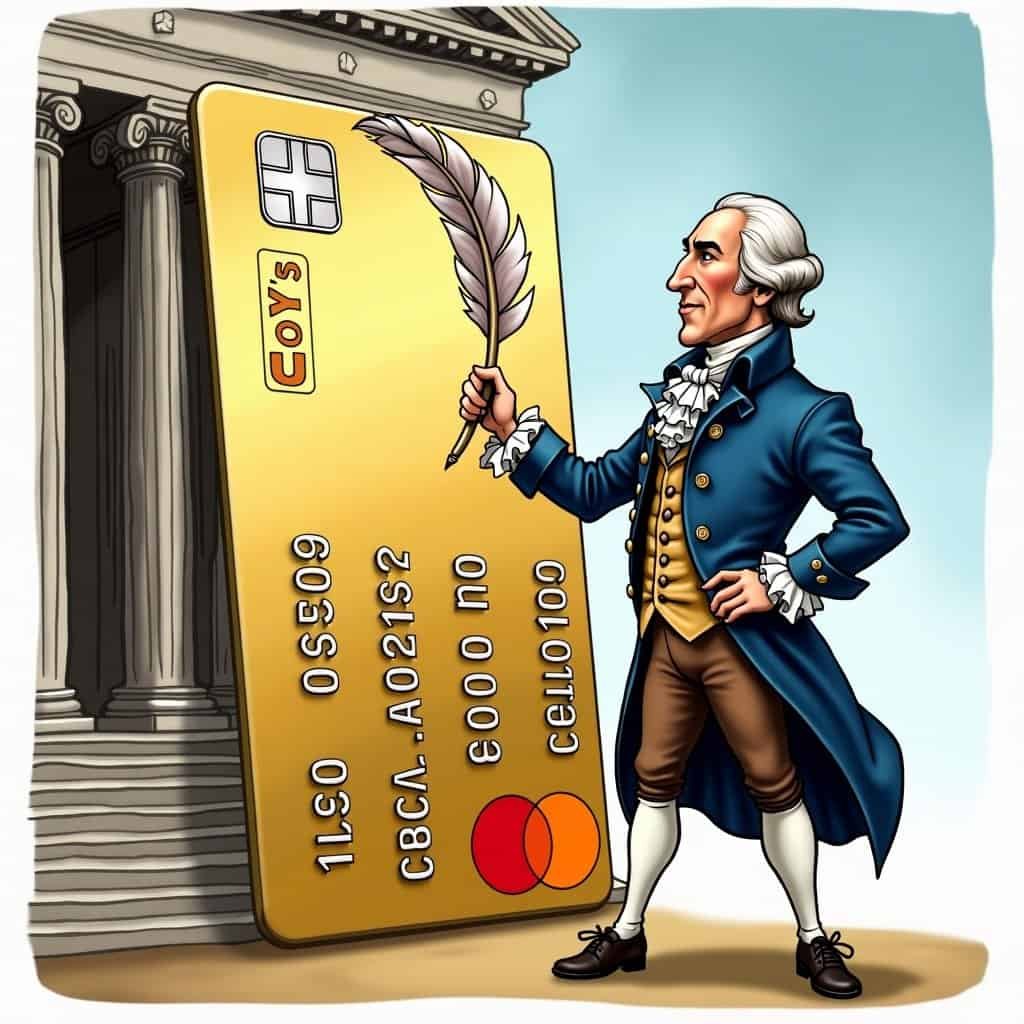Let’s chat about one of America’s favorite founding fathers (sorry Ben Franklin, your kite episodes don’t count), Alexander Hamilton, the original financial wizard and rock star of the Federalist scene. Hamilton wasn’t just the guy on the $10 bill; no, this man was the financial Elon Musk of the late 18th century—minus the Twitter ownership.
Hamilton’s brilliance is hard to overstate. As the mastermind behind our young nation’s finances, he drew up a plan that transformed a hodgepodge of colonies into an economic powerhouse. And here’s the kicker—while today’s liberals seem to think economic health comes from handing out government checks like Halloween candy, Hamilton built wealth through hard work, innovation, and a sprinkle of common sense.
Hamilton’s Vision: More Than Just Debt Management
Back when powdered wigs were all the rage, and TikTok meant a clock was about to chime, Hamilton had bigger plans for America than just dealing with revolutionary war debt. He proposed a national bank—cue shocked faces from modern-day socialists! Hamilton’s brainchild, the First Bank of the United States, was a clever way to unite state debts. Picture this: instead of today’s squabbles about wealth inequality over fancy coffee, Hamilton pushed for structure, order, and a federal system that encouraged people to start businesses.
Sure, some might say this made him “big government” for his time, but those naysayers miss the point—Hamilton’s government wasn’t there to control the marketplace but to oil its gears so it could run faster. Need to build strong national credit? No sweat. He championed taking on federal debt to look good to other countries. Maybe that’s why his legacy doesn’t include spending trillions on programs that don’t work just to please unrealistic environmental activists.
Hamilton’s Economic Philosophy: Capitalism with a Conscience
Here’s a fun fact: Hamilton truly believed in policies that helped businesses grow. He once said, “Power over a man’s subsistence is power over his will.” Sounds like someone who’d roll his eyes at today’s progressive tax schemes, right? Hamilton knew that wealth wasn’t something to punish but to use. It was capitalism with a heart—a way for everyone to do better, even if some yachts rose a bit higher than your fishing boat.
Hamilton’s Economic Principles vs. Modern Progressive Policies
| Hamilton’s Approach | Modern Progressive Approach |
|---|---|
| Encourage business growth | High taxes on businesses |
| Protect budding American enterprises | Open markets without protection |
| Temporary measures for real priorities | Permanent programs with unclear benefits |
| Focus on opportunity | Focus on redistribution |
Now compare those ideas with what might pass for economic policy in progressive circles today. For instance, taking money from the rich to give to the poor sounds nice, but it works about as well as skinny jeans on a grandfather. Hamilton looked for ways to give people chances rather than handouts. His tariffs protected new American businesses from overseas bullies like King George III, who still had tea smugglers hiding in his pockets.
The Whiskey Rebellion: More Than Just a Tax
And—hold onto your hats—Hamilton proposed a whiskey tax, sparking the famous Whiskey Rebellion. But don’t worry, fellow conservatives, it wasn’t some government money grab. It was about everyone chipping in and bringing unruly frontier loopholes into line. Today’s government just takes your cash and leaves you with the fine print of a Green New Deal. Hamilton’s approach? A practical, short-term measure to pay for things that mattered: keeping the country safe, building roads, and growing the economy.
What Can We Learn from Hamilton?
So, what can we take away from Old Hamil-fam? For starters, leave making people prosperous to conservative ideas of market-driven results and smart but limited policy, unlike overreaching progressive pocket-pickers. Economic freedom, rewarding hard work, and new ideas—these were Hamilton’s guiding stars.
It’s about time policymakers dust off this conservative playbook. Remind folks how money works before we’re all paying extra taxes to fire up our barbecue grills. So, pick up a copy of Hamilton’s Federalist Papers—or just watch that Broadway show!—and remember the legacy of a brilliant mind whose financial lessons still make sense, even in today’s world of flashy but misguided big-government handouts.
Table of Contents
- Hamilton’s Vision: More Than Just Debt Management
- Hamilton’s Economic Philosophy: Capitalism with a Conscience
- The Whiskey Rebellion: More Than Just a Tax
- What Can We Learn from Hamilton?






